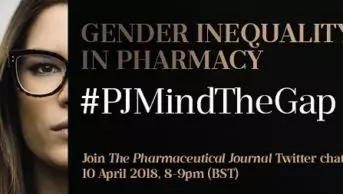
Shutterstock.com
More than three-quarters of pharmacists say they are interested in working towards consultant-level practice, a Royal Pharmaceutical Society (RPS) survey has found.
However, many of those keen to work as a consultant answered that they do not feel confident that they could meet all the requirements of a consultant pharmacist.
The UK-wide survey included 944 pharmacists, who self-identified as working at advanced level, with 729 (77%) of those expressing interest in consultant-level work.
The survey was intended to explore how confident advanced pharmacists felt in aspects of the RPS’s consultant pharmacist curriculum, with the findings highlighting areas where pharmacists want more support in their career development towards consultancy.
The Society launched its consultant pharmacist credentialing programme in October 2020. Completing the programme helps pharmacists demonstrate that they are capable of working at consultant pharmacist-level, and pharmacists must be credentialed before they can fill a consultant-level post. To date, 20 pharmacists have been credentialed as “consultant-ready” by the RPS.
The curriculum covers five broad areas: person-centred care and collaboration; professional practice; leadership and management; education, and research. Under each of these areas is a set of outcomes that pharmacists who meet the criteria for consultant-level practice can achieve.
The survey results, published in the International Journal of Pharmacy Practice, showed that, overall, self-confidence was lowest in the research aspects of the curriculum. Only 27.8% (263) of respondents felt either “really confident” or “confident” in generating new evidence through research and communicating their findings outside of their organisation.
Having confidence across the curriculum was generally associated with having an advanced clinical practitioner (ACP) qualification, the authors said; although, they noted that it was “not possible to tell whether pharmacists with more confidence undertake ACP qualifications or whether the qualifications lead to increased confidence levels”.
Having a postgraduate research qualification (master’s or PhD) also correlated with higher confidence across the curriculum, as did self-identifying as a specialist; increasing age and male gender.
“The finding that female gender is associated with lack of confidence fits with the existing evidence base from other healthcare professionals,” the authors said, adding that “a significant gender pay gap exists” and “this confidence gap represents a major strategic workforce problem in a profession with such a high proportion of females”.
The authors also said that being of white ethnicity was associated with lower confidence; however, they noted that “ethnic minority subgroups were substantially under-represented in our self-selecting study participants”. Of the 944 respondents, 79.5% (750) described themselves as white (British, Irish or other).
Having an independent prescribing qualification was also associated with lower confidence, although the authors said this “correlated to a number of the other significant predictors” and so may have impacted the findings.
Joseph Oakley, associate director (interim) of education and professional development at the RPS, and one of the authors of the paper, said: “It is essential that post-registration pharmacist workforce development across Great Britain continues to be informed by evidence and data; this will ensure maximum impact on the profession and its patients.
“This research, though, shows that pharmacists are not being provided with the opportunities and support to practise broadly across the five RPS curriculum domains. We urgently need to foster a culture in pharmacy of continuous learning and development, where pharmacists at all levels of practice become not only autonomous clinicians but confident and competent leaders, educators and researchers.”
Of the 944 survey respondents, 72.6% were female and the median age was 42 years. Independent prescribers made up 71.2% (672) of respondents. Just over half of all respondents (528;55.9%) worked in secondary care; 205 (21.7%) worked in primary care and 74 (7.8%) worked in community pharmacy.

